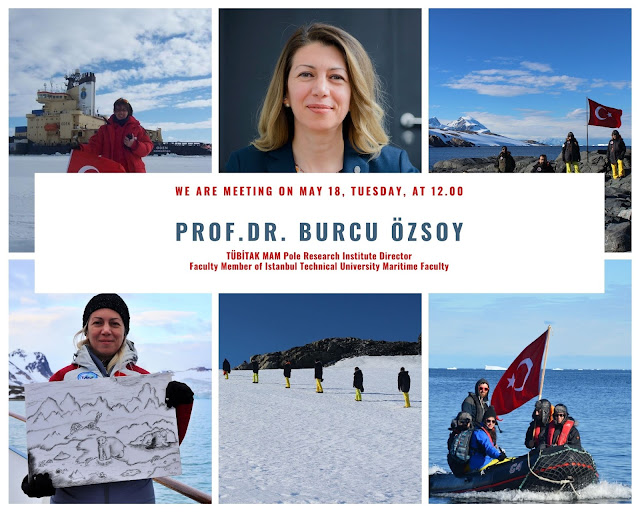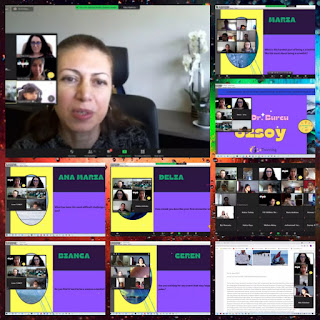MEETING A CONTEMPORARY SCIENTIST: PROF. DR. BURCU ÖZSOY
Prof. Dr. Burcu ÖZSOY
Istanbul Technical University / TUBITAK MAM Pole Research Institute
Prof. Dr. Burcu Özsoy was born in Gaziantep, Turkiye. After completing her high school education, Burcu Özsoy received her undergraduate and graduate degrees from Yıldız Technical University, Department of Geodesy and Photogrammetry Engineering. She started to work as a lecturer in Istanbul Technical University Maritime Faculty in 2001, and in 2005 at the University of Texas (UTSA) in San Antonio. Özsoy shaped her studies on satellite technology, especially in statistical mathematics and geophysical sciences, during her doctorate. By doing her doctorate on the subject of tracking the Antarctic continent and surrounding sea ice with satellite images, she had the opportunity to work on the same platforms with many national and international competent scientists working on the same subject in the United States, one of which is the NASA Goddard Space Flight Center. She participated in the first Antarctic Science Expedition in 2006-2007 with American and Swedish scientists within the framework of her doctorate, and during this expedition, she collected terrestrial data on sea ice observations, verified satellite images and also worked on the interaction of sea ice-climate change in Antarctica. In 2015, the 3 Million Euro Horizon 2020 project, which includes the Arctic and Antarctic regions, was accepted in partnership with European countries. Dr. Burcu Özsoy was the Turkey executive of the project. She was the founding director of the Center for Pole Studies (PolReC), which was established in Istanbul Technical University in January 2015, until December 2019. PolReC was Turkey’s first and that preiod’s only pole research center for 4 years. With its national and international scientific collaborations, it has also undertaken undertaken the coordination of the Turkish Science Base project under the auspices of the Presidency in Antarctica, as well as the national framework in the strategy of the polar science program. Prof. Dr. Burcu Özsoy, led the first, second and third National Antarctic Science Expeditions held in 2017, 2018, 2019 within the framework of the "Antarctic Turkish Science Base project". She was the expedition leader of the first Turkish Arctic Science Expedition, which was held in July 2019. She gave expert opinion to the special report published by the Intergovernmental Panel on Climate Change (IPCC), covering the regions of the ocean and the cryosphere (ice surfaces, glaciers, sea ice and permofrost). Özsoy is the director of the TÜBİTAK Marmara Research Center (MAM) Pole Research Institute, which was established on December 03, 2019, and the Vice President of TÜBİTAK MAM. Prof. Dr. Burcu Özsoy was elected to the scientific committee of the 2020 Newton Fund Awards as well as being a member of the Scientific Executive Board of the Southern Ocean Observation System. She received the Polar Studies award in the 2020 Turkish Academy of Sciences (TÜBA) Young Scientist Awards Program.
To get a better understanding of what Turkish Arctic Science Expedition Team does, you can check the documentaries below.
We are meeting Prof. Dr. Burcu ÖZSOY on a zoom meeting on May 18 between 12.00-12.30 p.m.
You can join our meeting via the information below.
Join Zoom Meeting
https://eba-gov-tr.zoom.us/j/83583026956
Meeting ID: 835 8302 6956
Passcode: 033429
If you have any questions that you want to ask her, please write as a comment below.


Perfect event! Congratulations and good luck. I will do my best to join the event.
ReplyDeleteThank you for your support dear Ceren. It means a lot! And we would love to see you at the event. We are looking forward to it, too! :)
DeleteErva Sevinç
ReplyDeleteI think the meeting was very nice. I had never spoken to a scientist before, so I feel very lucky.
I think the meeting was very beautiful and very impressive.
ReplyDelete